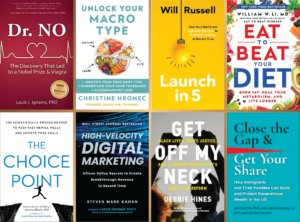Dealing with Imposter Syndrome

Share
Imposter syndrome. We all can get it. Yeah, I said it. All of us. No one is immune to imposter syndrome. It’s a natural human response to doing something new.
I think one of the greatest misconceptions people have around imposter syndrome is that once you reach a certain level of competency, you will somehow escape this very common, very human ailment. But the reality is that writing a book is especially intimidating when you have a reputation for excellence.
In fact, Psychology Today.com states that “around 25 to 30 percent of high achievers may suffer from imposter syndrome. And around 70 percent of adults may experience impostorism at least once in their lifetime.”
Let’s face it, becoming an author opens new avenues by which you can be judged.
Testing new waters, especially where you need to use new skills, can ignite imposter syndrome. And writing a book is a surefire trigger.
Even the best writers spend countless hours, days, months, years even, struggling over their work. Many pick at their writing with greater ruthlessness than any editor.
“This is crap,” is a common self-assessment.
The Syndrome
Imposter syndrome can show up at any time in the book process, when you’re getting started, moving from outline to writing, just before you finish the manuscript, or even as late as right before your book goes to press.
It manifests as resistance to moving forward with your project and usually comes with some convincing internal dialogue about why you shouldn’t.
This is why you must be cognizant of both the excuses you make as to “why I can’t work on the book right now” as well as the internal dialogue that questions your fitness for the task.
Some internal comments to watch out for that signal imposter syndrome:
- “Maybe I don’t really know enough about this topic.”
- “Someone said this already. I don’t have anything unique to add.”
- And the biggest catch-all confidence buster of all, “Who am I to write a book?”
The Antidote
Here’s what I have to say to all of that: becoming an author doesn’t require that you be a perfect supreme being. That’s not your job.
Being an author does require that you share the best of what you have to offer with the knowledge and experience available when you write your book.
No one expects you to have it all figured out, or never to formulate another opinion that will later contradict your book. It’s called growth. It’s what second editions of books are for.
In my opinion, the best way to think about your book is as a snapshot of a moment in time that reflects the awareness that you have now.
You can acknowledge to your reader your humanity and your fallibility without undermining your authority.
In fact, it’s crucial that you do so.
If you never ask your reader to put you on a pedestal, then there’s nowhere to fall. You are just one imperfect human writing to another and offering your best.
This is all to say that imposter syndrome shows up for everyone. The key is don’t stop your project when you start doubting yourself.
If you’re still struggling with imposter syndrome after reading this blog post, go and get my free guided meditation Mp3 on getting over the Fraud Factor (it’s at the bottom of the page).
I hope it helps.



